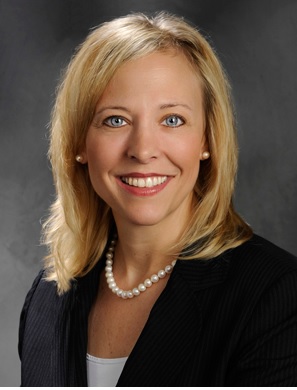
It wasn’t long ago that men who played leading roles in caring for their children were mocked as “Mr. Mom.” Today, they’re proudly called Dad. And there are more than 7 million of them in the U.S. Meanwhile, moms pursuing meaningful careers outside of the home are increasingly respected for their smarts and their salaries. They’re bringing home the proverbial bacon and valued for it.
Clearly, “traditional” responsibilities have shifted. As have society’s attitudes, and even our own individual mindsets. Thank goodness (insert hallelujah hands emoji here). There are numerous contributing factors, including the economy and its impact on the job market, to what some dub a trend. For me – and interestingly, four of my closest friends – it’s a purposeful choice that works for us and our families. And just like any family situation, it takes a lot of planning and a lot of work and empathy, from everyone.
Decide What’s Most Important to You
I’ve learned a lot from my personal experience – me as the primary breadwinner and my husband as the primary parent. I’m still learning; so is he. But we haven’t regretted our decision because it helps us achieve what we decided together is most important to us: raising our children, hands-on and with full hearts.
At the time I decided to accept my current position, my husband owned his own business. Most days he was an hour or more away from home. Thankfully, we had a great nanny who was wonderful with our twins. But it was when I confided in her – asking her to weigh in on how “we” were going to manage life with my new job and the kids – rather than my husband because he wasn’t around, it hit me. Why weren’t “we,” me and my husband, figuring this out together?
It was a wake-up call for both us. For a while, my husband moved his office/business into our basement. Little by little he scaled back until it became clear that he would either need to put more time into the business or stop altogether. And keep in mind too, we were still paying our nanny. Anyone with small children knows it’s impossible to be productive with them underfoot.
So, there’s me: really great job that I really love and am really good at (and well-compensated for). And there was my husband: feeling like nothing was getting the best of what he could offer. We needed to decide and focus on what was most important for our family. We worked too hard to have our children to pay someone else to raise them. We want to watch our kids grow up and know we were intimately involved in shaping their lives. This realization crystallized our next move: he would be the primary parent and I would support our family financially.
This is my most fundamental life lesson – and it’s from here that my advice for others trying to navigate similar circumstances or those wondering if it could work for them springs.
- What do you really want? What’s your goal? Once you know this, back into it and make it happen. It’s so easy to say, “We can’t make it work.” Or, maybe when we have more money… Here’s a tip: You’ll never have more money; the more you have the more you spend, I promise you. Instead, decide what’s most important to you and just go after it. This is true of most things in life.
- Release the reigns. Let’s all face this fact: No one will do “it” like you do – whether “it” is parenting, loading the dishwasher or leading a project. You must accept there are numerous ways to achieve the same outcome. Not necessarily better, just different. Yes, there are daily instances when I could say to my husband, “I wouldn’t do it that way.” Or “If I were you, I would…” But I don’t (most of the time) because he’s doing it his way – and it works. It’s not unlike the workplace. You need to allow others the space to do what they do what they do best, how they’re most comfortable doing it. Micromanaging is never fun, for anyone.
- Play to your strengths. This “rule” is a natural extension of the one above because everyone brings something different to the table. My husband and I weighed a ton of variables when deciding that he would be the primary parent. He’s focused and patient; a superstar when it comes to giving our kids his undivided attention and putting in the extra time to learn the math lesson, for example, so he can help with homework. I, on the other hand, am a notorious multi-tasker who thrives on control and organization to make things happen. My mind is always racing. My husband and I are a terrific team – because we play to one another’s strengths. We share the discipline and equally decide how to manage “life.” But ask me who is the best person to be the primary parent? It’s him. And he’s great at it.
- Be comfortable with the cross-over – and respect and value one another’s contributions. Marriage, family, life… it’s messy. That’s what makes it fun, right? But it also makes it challenging to always know the limits and steer clear. I don’t always agree with how my husband does things. He’d say the same of me. And sure, there are times when we push buttons – purposely (who doesn’t!?). But, when someone offers advice, it’s most often just that. Nine times out of 10, it’s not criticism; it’s coming from a good place. Assume positive intent. It’s easy to hurt feelings and get angry if you don’t. Everyone has their place and is an important contributor to the success of our family. It’s one of our “Family Rules” – a short list the four of us created, together, several years ago – and I remind myself daily.
The Family of the Future
The definition and innerworkings of the modern family will continue to evolve. We’ll see more stay-at-home dads. We’ll see stay-at-home moms too, but probably a little less. And of course, there will be increasingly more dual-income families. There is no standard, no traditional, no status quo, no “best” situation. The true “modern family” is diverse and blended. But what will remain common to all is the need for understanding and flexibility – at home and at work.

